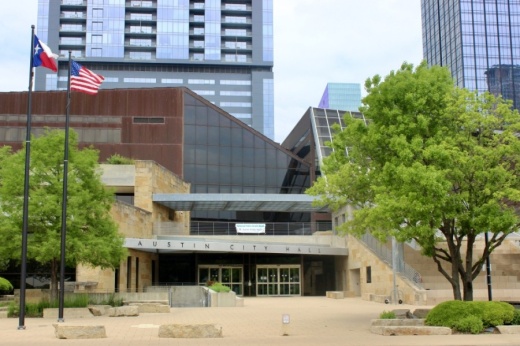Austin City Council this week is once again working through a range of items related to its homelessness mitigation strategies and the issue of public camping. Additionally, council members also spent time during their May 18 work session to review a possible plan for spending more than $140 million in federal funding through the American Rescue Plan Act and will consider items on cultural facilities, development bonuses and housing during their May 20 meeting.
American Rescue Plan funding
Austin is expecting to receive around $188.48 million through the American Rescue Plan split between two payments set to arrive this month and in May 2022. Council had directed city staff to develop a framework for spending that funding geared toward a handful of top priorities, and during their Tuesday work session council members heard an initial proposal on where the tens of millions of dollars in emergency funds could be spent.
Council had previously approved using $44.8 million of the ARPA funds on public health response to COVID-19 and the city's navigator program aimed at guiding local businesses through the federal assistance application process. Of the remaining $143.6 million in funding expected to arrive between fiscal years 2021 and 2022, city staff as of May 18 recommended spending the majority—58.5%—on homelessness initiatives.
Priorities including early childhood care, workforce development and food insecurity would receive $17.9 million combined under staff's proposal, with an additional $22.9 million reserved for immediate relief for individuals and households, several city cultural funds, and the Colony Park Sustainable Community Health Center. Staff's outline was rounded out with $18.8 million available for contingencies.
Officials were split Tuesday on the funding breakdown between priority areas, level of detail included in the staff plan, and timeline under which the outline would be approved this year. Council members said ongoing eviction protections, funding for the Austin Civilian Conservation Corps, and targeting additional "transformational" programming are needed for the spending framework before its final approval. Further planning will likely take place during council's June 1 work session.
Homelessness programs
Austin officials' focus on homelessness is not slowing down this spring, with several items on the May 20 meeting agenda geared toward funds and programming for unsheltered residents.
Council kicked off homelessness discussions this week during their work session with a preliminary overview of some city-owned sites that could soon be home to sanctioned homeless encampments as unregulated camps are phased out this summer. The outlook for any of those initially identified sites remains to be seen after several council members expressed skepticism regarding the potential program's use of parkland and fairness across town. An update on that topic is also expected in early June.
Stemming from previous city recommendations regarding permanent supportive housing for individuals experiencing homelessness, several agreements with Caritas of Austin and Integral Care were also listed for possible action on Thursday. However, two of the items were postponed to council's June 3 meeting leaving a multi-year funding agreement with Caritas totaling $2.2 million on the agenda. A separate agreement with Mobile Loaves & Fishes to waive $4.31 million in development fees for the nonprofit's phased expansion was listed as an item for approval May 20, but will be postponed to early June as well.
Finally, council is set to consider the acquisition or lease of Candlewood Suites on Pecan Park Boulevard during executive session May 20. The city's previously-announced plans to use the hotel for homeless housing has sparked pushback at the local and state level, and officials in Williamson County have vowed to fight the proposal in court if Austin's plan moves forward.
Density bonus program changes
An update to Austin's Downtown Density Bonus Program could result in changes to the schedule of fees paid in lieu of affordable housing construction by developers in the downtown area.
District 9 Council Member Kathie Tovo had proposed a recalibration of the city's current fee structure last month with the aim of better matching existing 2013-era fees to current market conditions. Through the program, varying fees based on a structure's location and type can be charged to developers for use in city affordable housing initiatives in place of planning for new affordable housing units in a project. The fees, or a requirement to build affordable housing, come into play if developers seek to exceed limits such as floor-to-area ratios in Austin's dense downtown districts.
Tovo in April had pushed to recalibrate bonus program specifically in downtown and the Rainey Street area through a short-term update, and other members of the dais expressed support both for that change and an expanded review of such bonus programs citywide in the future. The proposal up for council consideration this week could see fees set between $5 and $18 per square foot for residential or commercial developments across downtown.
Butler Shores cultural projects
An outline for the new Dougherty Arts Center and the first steps in formally establishing a section of Lady Bird Lake's south shore as a cultural hub are also up for council review May 20.
The arts center's relocation to Butler Shores was approved in 2019, and planning for the new facility's construction has been underway since. Council this week may select one of the center's two redevelopment options; both would be centered on Butler Shores green space and ZACH Theatre facilities between Toomey Road and Riverside Drive west of Lamar Boulevard.
Council may also direct City Manager Spencer Cronk to launch an analysis into preserving all of the Butler Shores and South Shore area and the cultural facilities there as a new Cultural and Climate Innovation District. Stretching along the lakefront from Barton Creek to First Street, the cultural district could include the range of park spaces, gardens, theaters, and museums as part of the cultural, recreational and climate protection plan.
Cronk would be due back before council in late September with a plan for the district's creation if the related resolution is approved this week.





